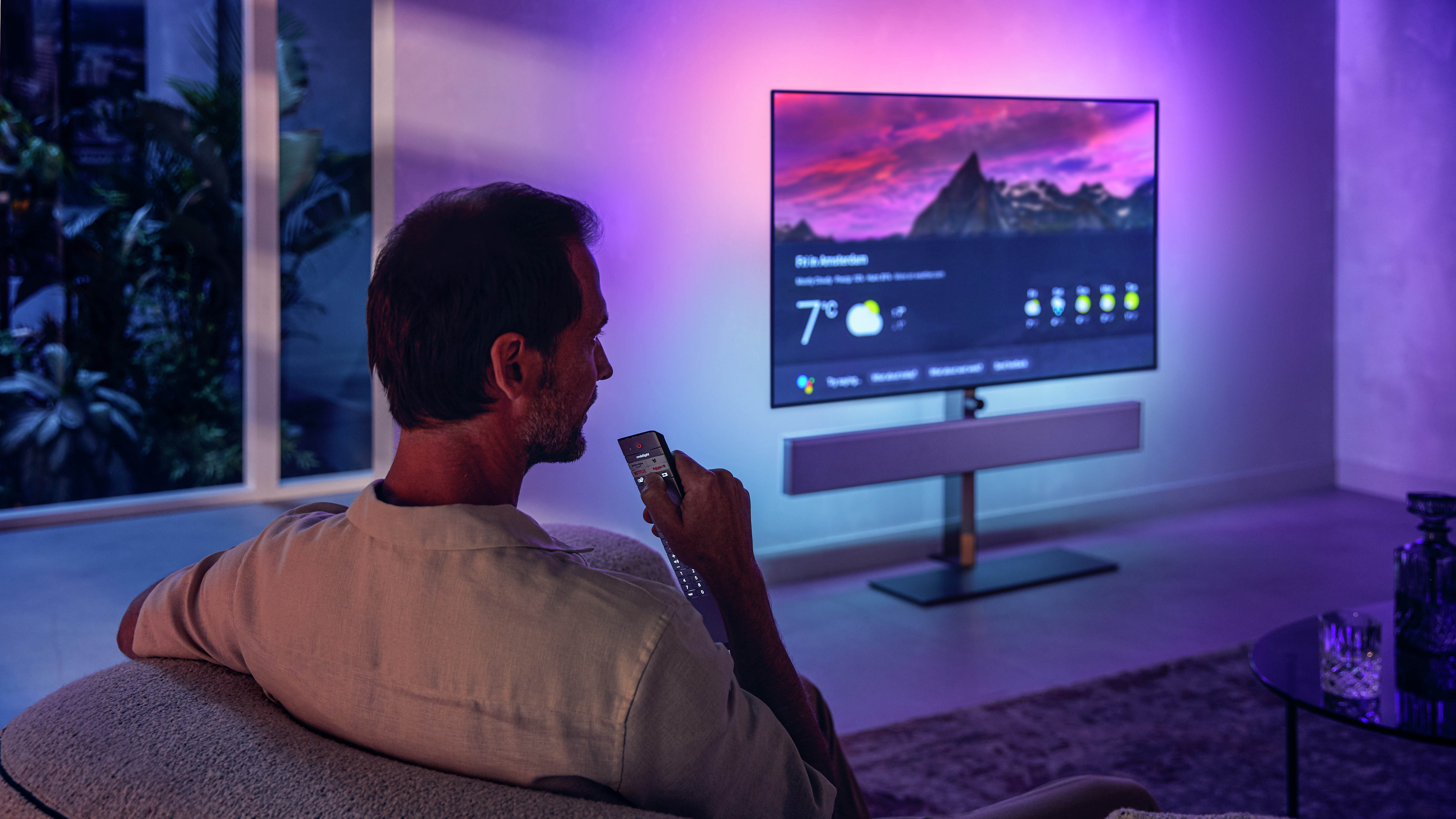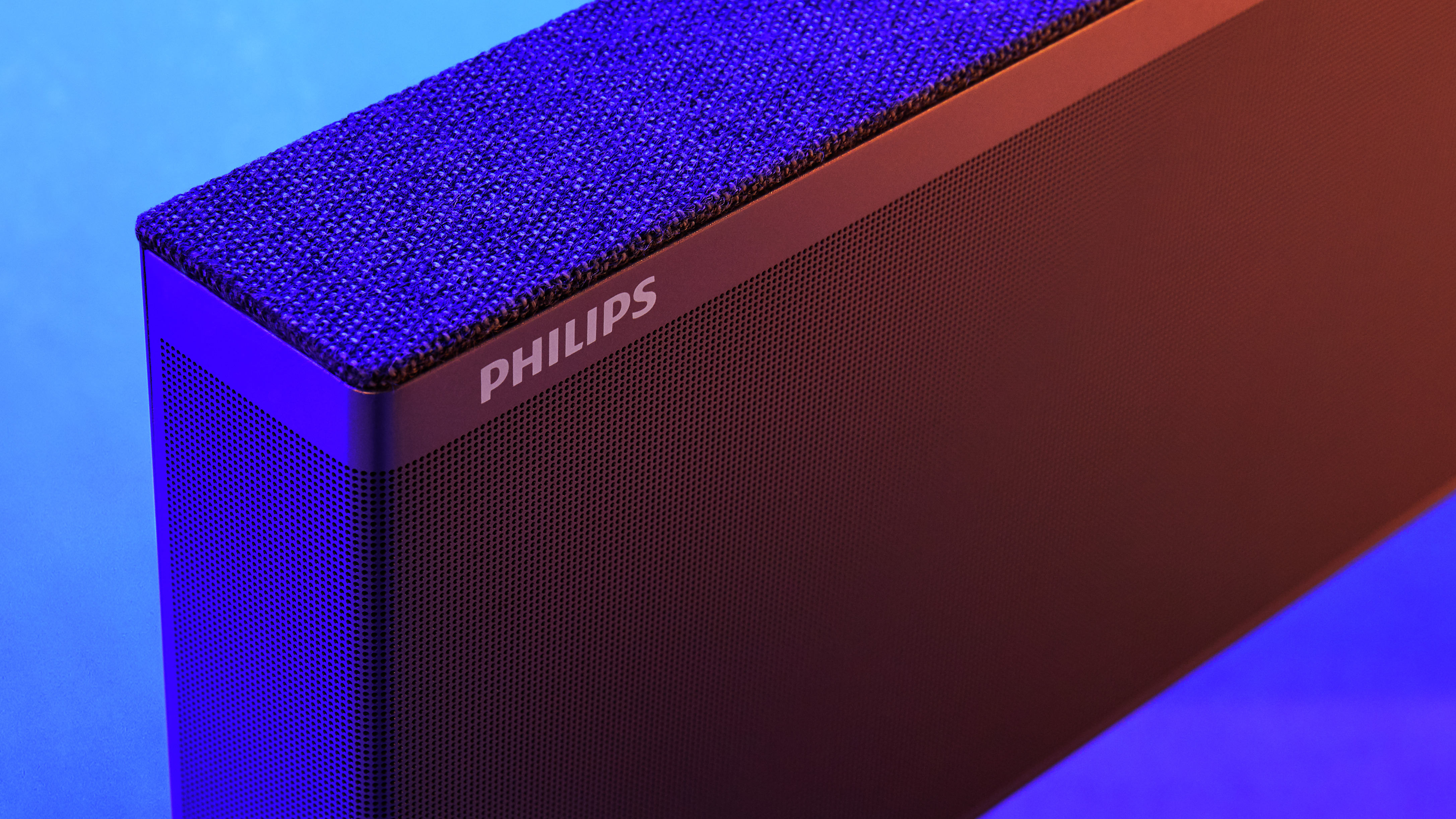New Philips OLED TVs look slick, but should you wait for Mini LED?
These Philips OLEDs could look, sound and play better than any before

Philips has unveiled a pair of new OLED TVs for 2021, and they look set to bring a host of welcome changes to the picture quality, audio capabilities, and gaming features available on the brand’s premium line of OLED screens – though it’s yet to be seen if the company’s Mini LED range could usurp them.
The new OLED+936 and OLED+986 build on the success of last year’s OLED+935 and OLED+984 models, packing in Philips’ “latest fifth-generation P5 AI Dual Picture engine”, with AI enhancements to reduce banding in images and aid sharpness in images.
Both models feature “an entirely new OLED panel” with “20% more light output and an even better viewing angle”, seemingly on a par with the LG G1 OLED and Sony A90J, which come with LG Display’s brightness-boosting OLED evo panel tech.
- Philips TV 2021: every screen coming this year
- What are the best OLED TVs
- Ambilight: what is it, and should you get it?
You will, of course, get Ambilight – the built-in smart lighting system that projects on-screen colors onto the wall behind the television, and this system looks to be the same as what we’ve seen in previous screens. The anti-burn-in technology that debuted on the OLED+935 last year is now also standardised across Philips’ 2021 OLED range, which should help to persuade gamers to try out the company’s sets – especially with the host of gaming enhancements that have landed with these new screens.
That includes an upgrade to HDMI 2.1 specification, meaning that VRR, ALLM, Freesync Premium, G-Sync compatibility and HGiG tone mapping for improved HDR. We’re told by Philips exec Danny Tuck that these screens can offer input lag as low as 11ms, too, which should be a very acceptable number for many of today’s console gamers.
There’s also been a huge audio overhaul, with a “completely redesigned sound enclosure from Bowers & Wilkins” in the new sets, helping to bring drivers closer to the front of the built-in and forward-facing soundbars found on these screens, with upgraded voice coils and a “steeper design of cone” to help project audio upwards for Dolby Atmos verticality too. The speaker enclosure is “perfectly tuned to match” each screen size as well, while a single power cable connects both your television and the soundbar, ensuring a lack of clutter.
Philips claims its OLED+986 model is the “best-sounding TV ever”, which is certainly a big claim – and the sort of thing every TV maker says – but the usual quality found from Bowers & Wilkins speakers means it’s still certainly worth paying attention to.
Get daily insight, inspiration and deals in your inbox
Sign up for breaking news, reviews, opinion, top tech deals, and more.
The Philips OLED+936 will be available from September in 48-inch, 55-inch, and 65-inch sizes, while the Philips OLED+986 will be available in October with a single 65-inch size. However, the brightness uptick in OLED evo panels doesn’t seem to be available in a 48-inch size, meaning that the smallest versions of these screens won’t get the same light advantages as their larger counterparts.
Analysis: A war waged on more fronts than ever

The best TVs in 2021 need to do a lot more than offer a good picture, especially since the OLED TVs at the top of so many ranges have their panels supplied by the same company, LG Display. While the implementation of these panels varies, along with different picture processing and the like, it’s really in secondary considerations like built-in sound, gaming features, and other notable tricks like Ambilight that will help these screens stand out – or would, if everyone else wasn’t doing the same thing.
Panasonic offers OLED TVs with 125W of built-in audio and side-firing speakers, and similar levels of 14.4ms input lag for gamers, and it can be a bit confusing trying to suss out which TV maker offers the best package – especially now that HDMI 2.1 specification has become the norm among premium screens.
Philips is facing competition not only from other OLED makers, though, but also its own Mini LED range. Reviews are yet to arrive for its new-for-2021 Mini LED range of screens, though it confirms that “Mini LED is going to stay in 2022, yes” – suggesting a lot of confidence in the performance of the panel technology.
Before you pre-order a new OLED screen, then, you may want to wait to see how popular Philips’ Mini LEDs actually are – although it’s clear that company is still saving its best features for its OLED+ range, and the best combination of picture quality, impactful sound, and four-sided Ambilight is likely to be found here.
- Mini LED vs OLED: how do the top TV technologies compare?
Henry is a freelance technology journalist, and former News & Features Editor for TechRadar, where he specialized in home entertainment gadgets such as TVs, projectors, soundbars, and smart speakers. Other bylines include Edge, T3, iMore, GamesRadar, NBC News, Healthline, and The Times.
